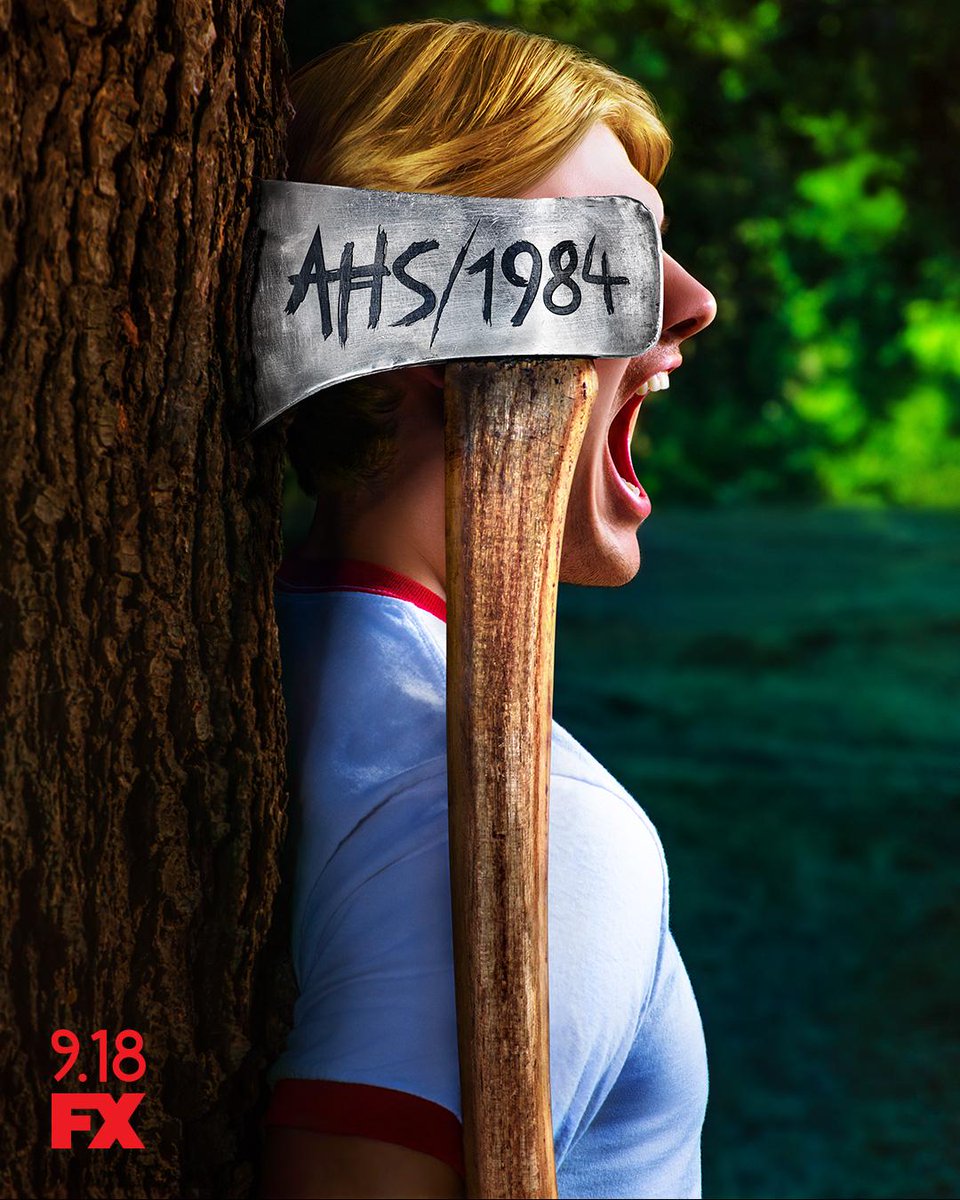
If one has watched all the previous eight seasons of American Horror Story, the latest season 9-1984, seems a little offbeat.
This season is kind of a ‘tribute’ to Hollywood’s slasher genre, it revolves around the camp Redwood that has been renovated and reopened by the ‘sole survivor’ (Margaret) of Mr. Jingles’ previous attack in the 60’s on the same camp. A group of youngsters go for volunteering at the camp to spend their summer away from the horrors of Los Angeles, because they believe that the serial killers get more active in summers. But later they realize that the camp is even bigger a mess than the city.
The story has some shockers (should I give the spoilers?), it has several places where the story smashes your assumed designations for victims and villains. So when we take Margaret for an overly religious Christian who keeps insisting that ‘God’s light helped her survive the attacks, and think of Mr. Jingles as an evil psycho who cannot be tamed, Donna-the enthusiastic psychologist-comes as hope for Mr. Jingles to find a cure, and changes everything. Similar to the earlier seasons, we get various shades of human nature. We get confused with the motives of each character but it later gets cleared to some extent.
It also leaves us with some bizarre plot-issues/holes.
Firstly, it’s very short, it makes one wonder if the story is even complete. Surely they have established a plot-line, but it leaves a lot of loose ends left for the viewers to wonder about. The short duration of the season limits the story to a very small and shallow ground. They introduce every character but leave their stories incomplete. Unlike earlier seasons, where every character has a past and is linked with every other character, 1984 fails to connect and tell stories of people in it.
Apart form one black character, the story is a little less inclusive, especially of the gender roles. We see a fluid sexual representation in all other seasons, while in 1984, we only see glimpses of Xavier’s struggle for identity-that too is shown as a desperate attempt for sustaining his acting career. Despite having 2 major male serial killers, the depiction of toxic masculinity was done through the male volunteers, destroying the alienation of the concept (showing you don’t have to be a psycho to exhibit toxic masculinity, it’s everywhere!)
If this were a usual AHS season, every character’s story would have grabbed our attention and we’d have swirled in the loops and connections all over the season. It doesn’t fit in as American Horror Story, because it doesn’t care about the details of plot lines other than that of the two serial killers (Benjamin Richter aka Mr. Jingles and Richard Ramirez aka The Night Stalker.) everyone else is almost a nobody.
Entering two serial killers in the same camp (Mr. Jingles and the Night-stalker) becomes very confusing especially when the real purpose behind Jingles’ first return gets revealed. Though the story propagates through Jingles’s gaze, the Night-stalker steals the limelight. And oh, all that blood(!)

Which brings to the question, what might be the need of a parallel plot for the Night stalker? Ramirez (who existed in real life) is shown to have a troubled childhood and an early exposure to crime, and that’s a fine depiction. But he is also shown to have some deal with the Satan (how convenient it is to blame the horrors done by humans on a virtual entity, isn’t it!); but the why, when and how, are unknown. Satan doesn’t even have a purpose in this season, unlike Apocalypse (season 8), in which he had a full-fledged plan and tried to execute it through Michael Langdon (and later through another Satan-baby in the epilogue). But in 1984, Satan is just, high. He, through Richard, revives any random dead-fellow that shows up (or dies down). It’s almost as if Richard acts as the HR for the Satan enterprises (!)
I won’t talk about Mr. Jingles, because that will give away everything, he’s literally the only prota/anta/whatever-gonist. Everyone else is either almost a nobody or revolves around him. But the mystery behind the blood curse in camp Redwood-though they have shown the history of it, linking it with Mr. Jingles’ childhood-remains a mystery, it doesn’t clear why it traps the souls inside the camp for the eternity and how to get out of it. I am unable to grasp how they got away with leaving it unanswered.

The curse points out another big mistake. The souls in the camp decide to trap Ramirez inside and keep killing him (because he keeps getting resurrected by Satan for no reason) to restrain him from catching Jingles’ son, who was safe in the outer world. So we see that Ramirez (or/and his soul) is inside the camp till 2019 (at least). Here we can see they’ve improvised, because the real life Richard Ramirez was immediately caught within a year, he was in jail from 1985-2013 and died of blood cancer while in custody. Going back to Season 5 (Hotel), we’ve already seen Ramirez’s soul attending the annual Devil’s night arranged by James Patrick March (in 2015). There he tells the Detective Lowe the real story. Since all the AHS seasons have a linear timeline, this information does not fit (how he managed to breakout the vigilance in the camp to visit the hotel, how he came back inside etc..), it changes everything because AHS shows strong links between seasons.
Also, the short role of Bruce (played by Dylan McDermott) who’s just another sadist who has set a target of killing x number of people, was annoying. He was not even needed in the story.. It was evident that he was in it just because he has been a major part of Murder House and Asylum (S1 and S2).
Then comes the 80’s nostalgia. It’s very clear from the name of the season that it’s mainly based in the 80’s and the season does capture the audience by quite a loud display of the iconic American capitalism and consumerism with multiple tools from that era like aerobics studios, camping site with all the slasher-gore, making everyone look extremely sex-deprived(!) and the Synth title track (it’s bad, lacks all the intensity) and rock music all over the season. But it becomes repetitive after a point and the whole season gets trapped in ‘the 80’s will never die’ narrative. It non-inclusively assumes that the viewer is all too familiar with the cultural dynamics, which doesn’t help a lot of them to connect with it. But I must say, it’s sick; or should I say the society itself is, if they really considered it glorious..(?)

But that’s not the only factor to blame. Another reason why it seems alien is that it’s too outdoor-ish. The very essence of American Horror Story is to present the ‘internal’ crisis and conflicts of Americans (or humans in general) using ghosts/supernatural tools. It uses all kinds and forms of external interventions, folklore, ghosts and whichever species one can imagine, to tell a story-a story of people, their emotions, struggles, bindings and interaction-to bring everyone’s internal horrors and pain alive in an actual form, and to show how trapped everyone is in their own personal hell (AHS S3-coven-has literally shown ‘personal hell’s of the characters). This doesn’t need the overly outdoor settee that has been used in 1984, it just leads to distraction.

Despite this, the female characters stand out in their individual performances and make a significant impact on the story. Donna, is an ambitious woman who almost directly triggered the 1984’s violence in camp Redwood. Initial perception of Donna is, a ruthless academician who doesn’t care about the human price to get her work done ‘in the name of science’. Why she was so obsessed with serial killers, gets clear after a peek into her past. Her story looks complete, but later we see a surprising switch in her character which changes the course of the story.

The relationship between Donna and Brooke’s also shows a drastic switch. Though Brooke is initially shown to be a submissive, shy girl, her experiences and alliance with Donna turn her into a ‘badass’.
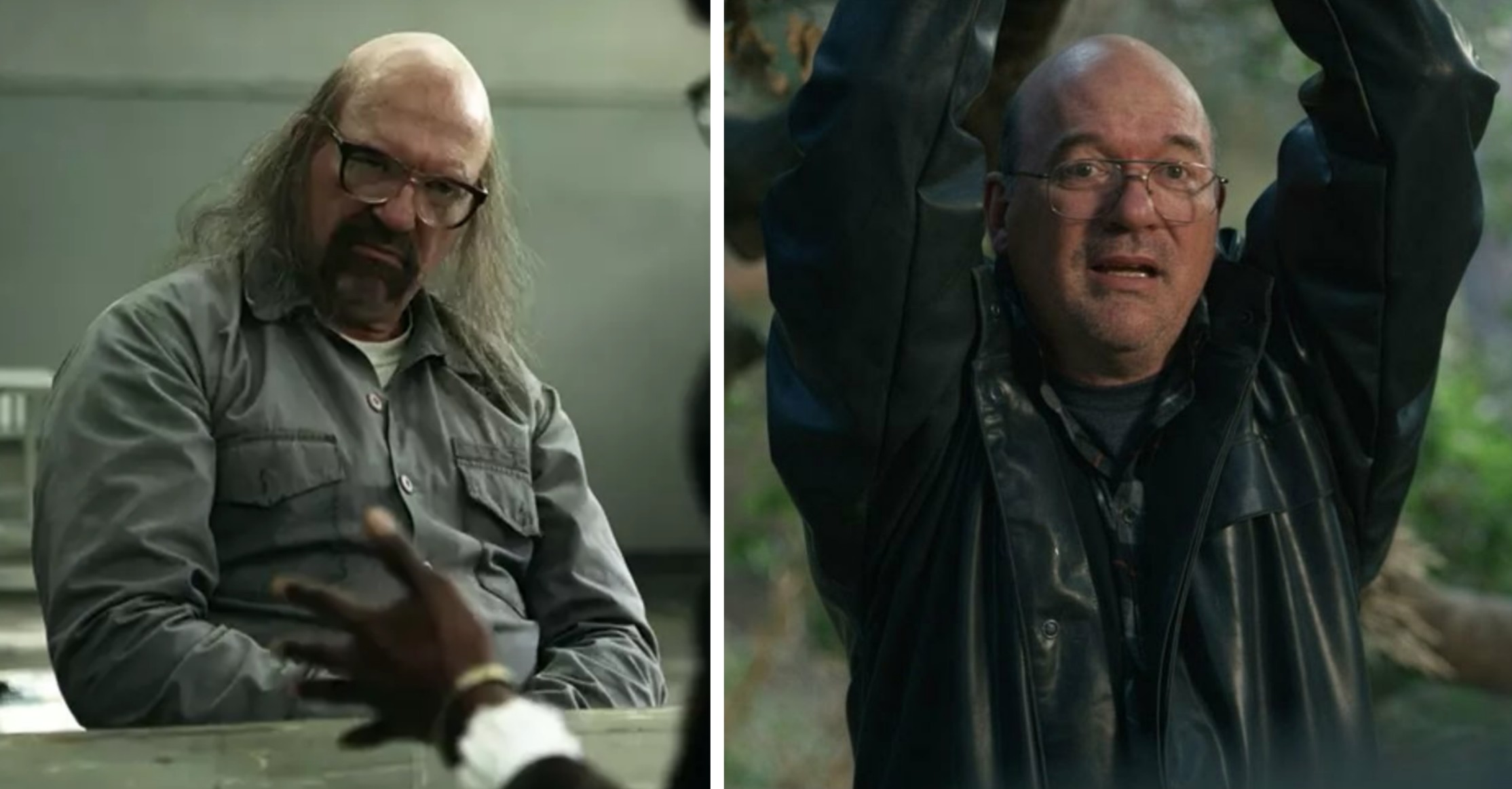
But she wins us best in the season finale, where it’s revealed how she moved on and started a better life by seeing light from Mr. Jingles’s story, proving that inspiration can come from anywhere..
We don’t get to know much about Montana’s history, apart from the fact that she was probably fat-shamed in childhood and was seeking revenge for her brother’s murder (she held Brooke accountable). Initially she seems like a messed up individual; but her philosophy makes one wonder about social conventions of good and bad. She gives a very important insight when Trevor admits his love for her and tells her that he wanted to die there and spend the eternity trapped inside camp Redwood with her.
She says “It’s stupid. You don’t even know me, I’m not someone you can love. I’m not someone to die for, I’m a monster.” And when he asks her how she could say that, she tells him “My ex-boyfriend was Richard Ramirez.”
He gives a horrified expression to that and then she snaps, “Wow! I can’t believe you! I see how you look at me now; like I’m disgusting..
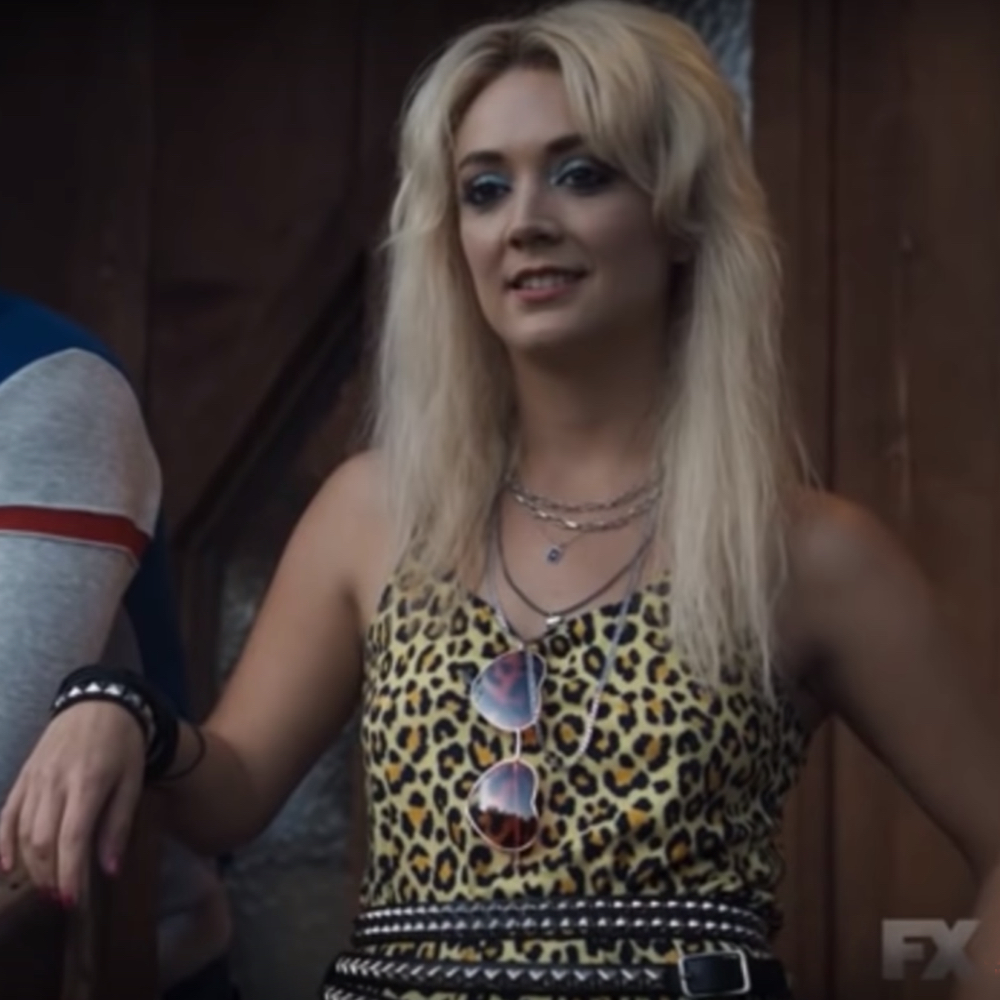
“Men do heinous shit all the time, (gives the triggering details), and you know what, they are treated as Rock-stars..! Fan-mails, movies, books, and research papers, articles.. And somehow, it’s always the mommy’s fault for not loving them.. Or the wife who couldn’t satisfy him.. Or the pretty girl who rejected him.. Why are we (women) always the scapegoats for sick men to blame their bullshit on? I didn’t make Richard evil, he was already messed up when I met him. F*** you all..” and she goes on with her monologue that’s relevant to the scene. Shows how twisted and biased the whole world has always been with women, may it be economy, entertainment or even scientific research & psychology!
This season also makes us wonder if the Americans were really that sick during that period, feeding on the horrors faced by others to thrive the economy. How else can we explain the way Margaret became a millionaire turning horrible experiences into tourist attractions? Or the way people worshiped the psychopaths and held ambitions to become killers like them? Or the way even after so many murders, all the musicians and fans were desperate to arrive at the camp for the program in the same week? Not to forget the extreme creativity in ideas of violence..
The only takeaway message would be- – -no there’s no takeaway message. Bye bye.




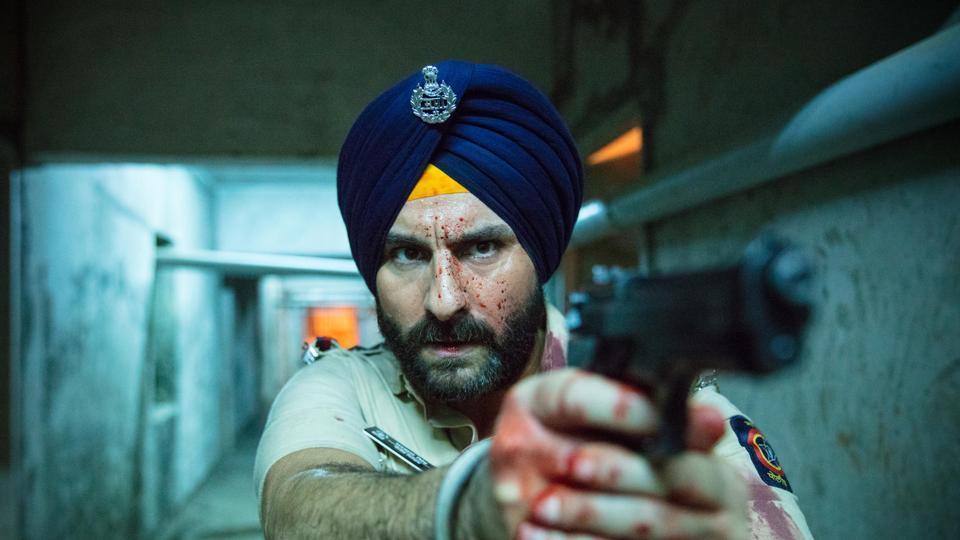 From the trailer (I haven’t read the novel), the plot looked simple-same old story of a gangster’s rise and fall; a rather monotonous one, dealt quite a lot with in Bollywood. But while/after watching it, one can’t resist to get attached to it and want more of it. Its influence thrives per episode, and in the end of the season we are left with dumbstruck awe. It breaks a lot of stereotypes, which makes it a unique creation.
From the trailer (I haven’t read the novel), the plot looked simple-same old story of a gangster’s rise and fall; a rather monotonous one, dealt quite a lot with in Bollywood. But while/after watching it, one can’t resist to get attached to it and want more of it. Its influence thrives per episode, and in the end of the season we are left with dumbstruck awe. It breaks a lot of stereotypes, which makes it a unique creation.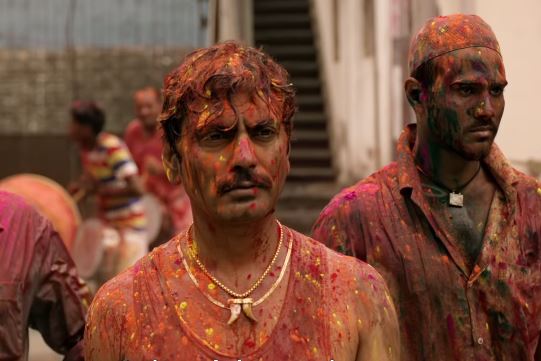 The so-called antagonist, Ganesh Gaitonde is portayed by Nawazuddin Siddiqui, who has not only done an extraordinary job of acting, but also has owned the series in the way he says-”Kabhi kabhi lagta hai apun hi bhagwan hai”!. He tells us (actually, Sartaaj) his story in the entire season. He gives Sartaaj a big mystery to solve, which has a long list of sub questions-what is their connection? What’s going to happen in the next 25 days? Why and how was he betrayed? Was he scared? Where was he in the last 15-20 years? Why his third Baap is so important? and so on.. The episodes solve some of these and add a few new mysteries thereby making the viewers stick to their screens. It becomes interesting and thrilling because of his death in the very first episode. In each of the episodes we get introduced to different mythological terms–after which the episodes are named-from Mahabharat with respect to the characters in this story, which is a good change from the bombardment of foreign mythological series.
The so-called antagonist, Ganesh Gaitonde is portayed by Nawazuddin Siddiqui, who has not only done an extraordinary job of acting, but also has owned the series in the way he says-”Kabhi kabhi lagta hai apun hi bhagwan hai”!. He tells us (actually, Sartaaj) his story in the entire season. He gives Sartaaj a big mystery to solve, which has a long list of sub questions-what is their connection? What’s going to happen in the next 25 days? Why and how was he betrayed? Was he scared? Where was he in the last 15-20 years? Why his third Baap is so important? and so on.. The episodes solve some of these and add a few new mysteries thereby making the viewers stick to their screens. It becomes interesting and thrilling because of his death in the very first episode. In each of the episodes we get introduced to different mythological terms–after which the episodes are named-from Mahabharat with respect to the characters in this story, which is a good change from the bombardment of foreign mythological series.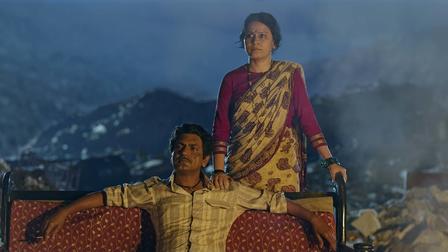 His wife Subhadra (Rajshri Deshpande) has a small but major part in his life, her death makes him murder 80 random innocent people, which fuels the riots in 1992 and leads him to suffer in jail. Kantabaai was Ganesh’s strong acquaintance and a sort of guide in Mumbai (portrayed by Shalini Vatsa). All these women rise bright and strong, and even dominate over Gaitonde’s being. Whereas Sartaaj Singh is initially isolated and distorted by his divorce. He eventually evolves as a person bold enough to even risk his job by diving deep into Gaitonde’s case. Saif Ali Khan has done his homework well for this character so it doesn’t, at any point, look forced.
His wife Subhadra (Rajshri Deshpande) has a small but major part in his life, her death makes him murder 80 random innocent people, which fuels the riots in 1992 and leads him to suffer in jail. Kantabaai was Ganesh’s strong acquaintance and a sort of guide in Mumbai (portrayed by Shalini Vatsa). All these women rise bright and strong, and even dominate over Gaitonde’s being. Whereas Sartaaj Singh is initially isolated and distorted by his divorce. He eventually evolves as a person bold enough to even risk his job by diving deep into Gaitonde’s case. Saif Ali Khan has done his homework well for this character so it doesn’t, at any point, look forced.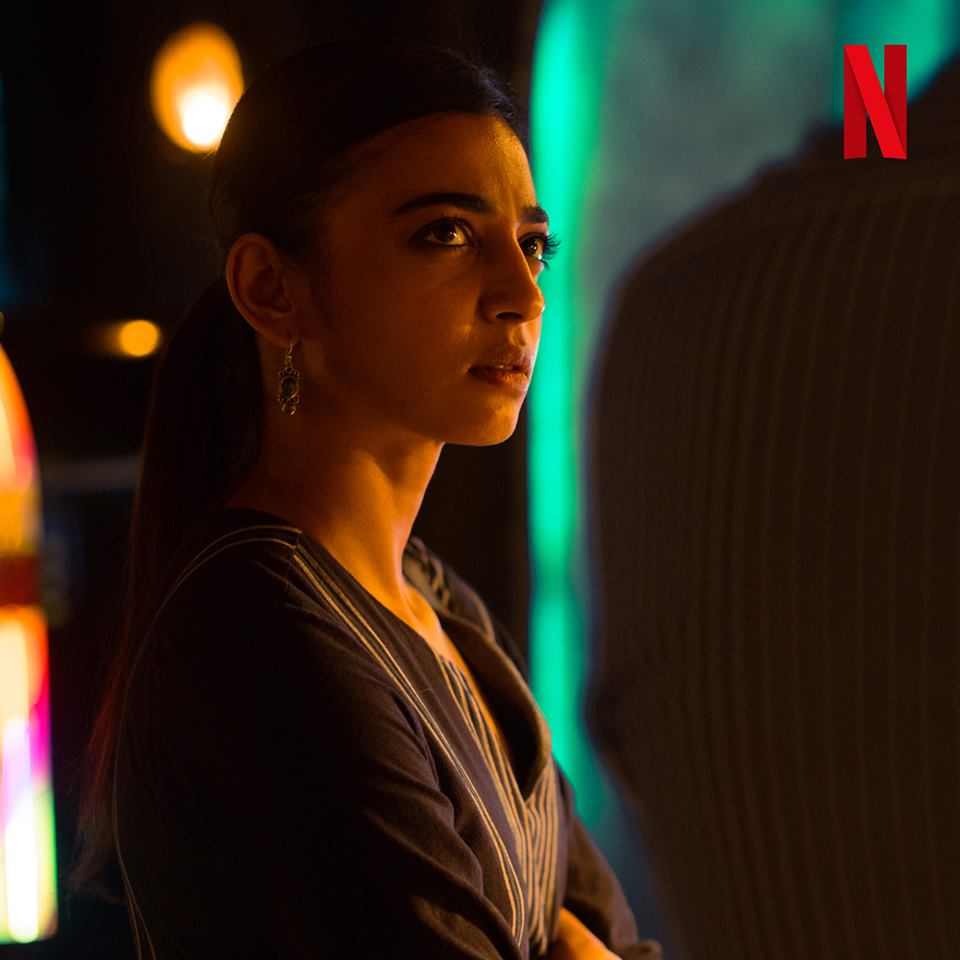 One of the appealing features of this season was supposed to be Anjali Mathur (Radhika Apte)-the RAW agent-who is shown continuously fighting the demons of patriarchy in the line of work and the tragic closure of the case of her missing father. Looking at the strong female characters Radhika has portrayed earlier, we might develop some expectations from Anjali, her being a female RAW agent. She is ‘shown’ to have been complaining that female agents, despite their abilities, are forced to do desk work rather than field work. At the same time, she is portrayed to be quite inadequate for her job-not vigilant enough-making her death look dumb. Whether it is the requirement of the character or not is another matter; but RAW certainly trains the agents well, so it’s not convincing enough. Same with Constable-and a friendly colleague of Sartaaj-Katekar’s (Jitendra Joshi) death, it looks slightly out-of-place (not so smart); but along with his family, he makes a significant presence in the season.
One of the appealing features of this season was supposed to be Anjali Mathur (Radhika Apte)-the RAW agent-who is shown continuously fighting the demons of patriarchy in the line of work and the tragic closure of the case of her missing father. Looking at the strong female characters Radhika has portrayed earlier, we might develop some expectations from Anjali, her being a female RAW agent. She is ‘shown’ to have been complaining that female agents, despite their abilities, are forced to do desk work rather than field work. At the same time, she is portrayed to be quite inadequate for her job-not vigilant enough-making her death look dumb. Whether it is the requirement of the character or not is another matter; but RAW certainly trains the agents well, so it’s not convincing enough. Same with Constable-and a friendly colleague of Sartaaj-Katekar’s (Jitendra Joshi) death, it looks slightly out-of-place (not so smart); but along with his family, he makes a significant presence in the season. 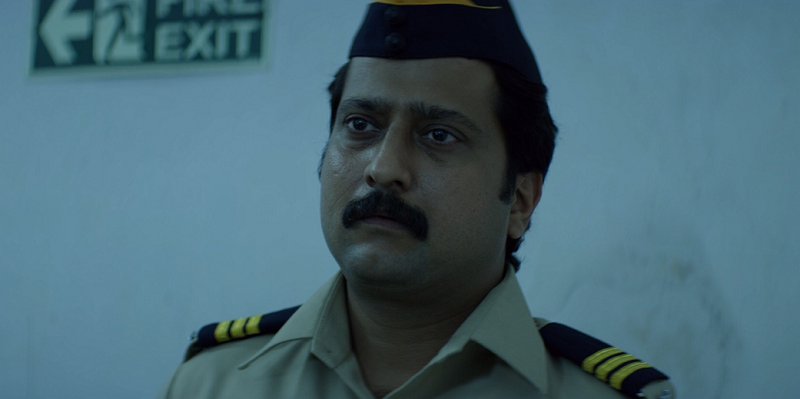 His journey from the cop who is unenthusiastic about the missing Muslim boy to the cop who tells his wife, ”आज खूप दिवसांनी खऱ्या पोलिसासारखं वागलो (Today, I acted as a true policeman after a long time)” with satisfaction, is overwhelming.
His journey from the cop who is unenthusiastic about the missing Muslim boy to the cop who tells his wife, ”आज खूप दिवसांनी खऱ्या पोलिसासारखं वागलो (Today, I acted as a true policeman after a long time)” with satisfaction, is overwhelming.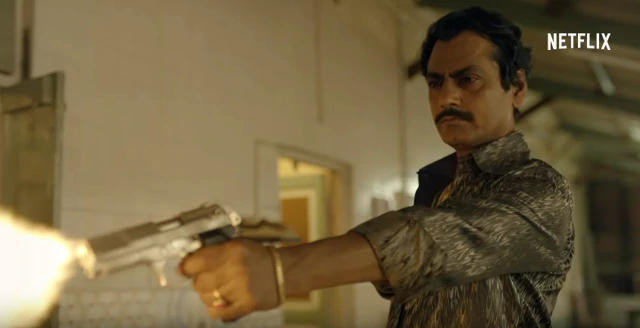 It is quite challenging to construct a fictional character taking part in actual history without molding it and constantly switching from flashbacks to present, but the directors and writers are successful in making it look natural.
It is quite challenging to construct a fictional character taking part in actual history without molding it and constantly switching from flashbacks to present, but the directors and writers are successful in making it look natural.